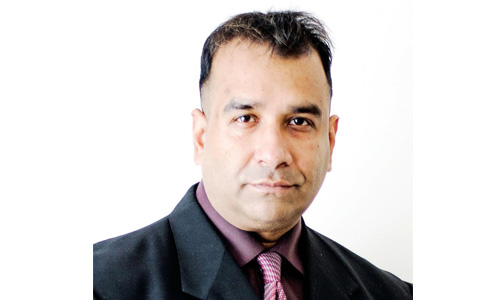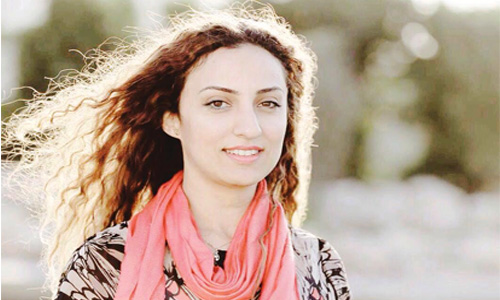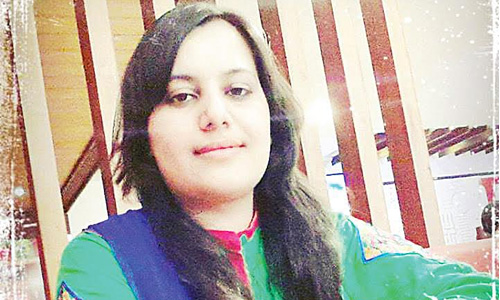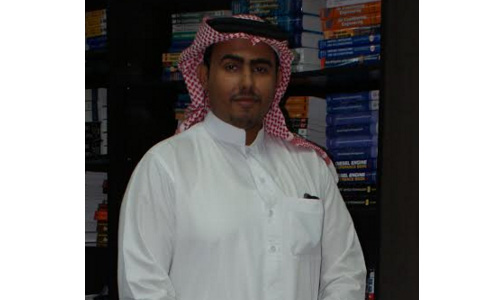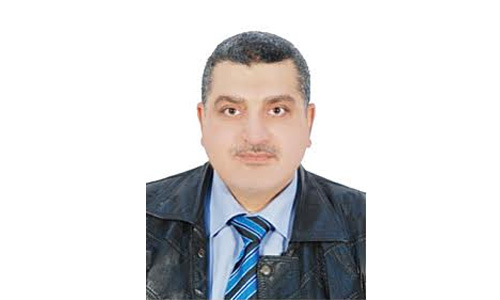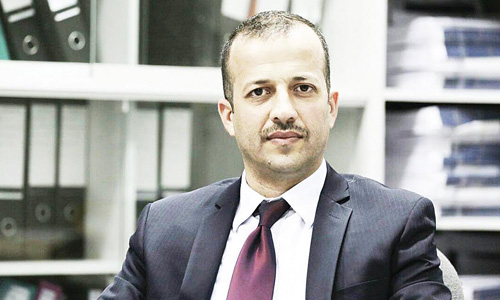What to do after school?
Grade 12 students will soon be out of school and are looking forward to college life. There are many colleges in Bahrain and the word college brings many thoughts to a student’s mind. While for some it is about reaching the corridors of the top engineering colleges, or top medical colleges on the other hand there are many who are not sure about what course to do and which college to join. So while one is readying oneself for life after 12th, the dilemma about which college to choose and which course to choose from the wide array of courses after 12th only increases. DT News contributor Balqees Akram talked to educational experts in Bahrain. Here are their views. Send your response to sreesadan@dt.bh
Decisions have long term impact in life
Students of today are the professionals of tomorrow. Therefore, it is vital that they are nurtured into that direction during their growth from childhood to adulthood. The process of the discussion of their career and choosing courses should take place during the transition period from their childhood to adulthood. In North America, the process starts when the student enters grade 9. Whatever the course he chooses has a long term impact in his life. There’s no doubt that all students learn differently due to their different family background and culture.
Role of parents:
No matter how long of the day a student spends time at his school, there is not substitute of roles that parents can play in a child’s life in comparison to teachers. Parents must play the role of nurturing their kids into making decision. The only way to do this is to sit with them with an open mind and listen to their dream instead of imposing their dreams onto them. At the end of the day, a student must learn to be accountable for his action. The student must have his own dreams and goals in life. It is always better to listen to their dream first followed by guiding them to accomplish it. For example, some parents may want their child to be an engineer, but he may want to become a lawyer. If he is forced to be an engineer, then his dream may be shattered and he may lose motivation to study. Therefore, it is always good to let them speak their mind.
Role of a teacher/advisor:
Teachers’ main role is to assist the student to accomplish his dream by setting goals and objectives. Like the role of the parents, a teacher/advisor must play the role to assist the student to decide. Students often came to me asking for my opinion about their courses. Instead of answering, I always asked them about their choice. I have encountered many students that simply had no idea about what to choose or how to choose. Many of these students were in the “A” category. That proved that in most cases, their parents never spoke to them about their dream when it came to profession. Some simply grew up thinking to take up parents’ profession. In my view, success is wrongly measured by looking at profession and status. In my opinion, success is when one can choose and decide on what he wants to do in life and accomplishes it.
Coordination between Parents and Advisor:
There must be a coordination between parents and advisors. It is not fair to the student that the advice he receives from his parents differ totally from the teacher/advisor in relation to academic advising. Once there’s a coordination between the parents and the teacher, only then the advising may be successful. In my opinion, the student, his parents and his teacher should work as a team to assist and organize the student’s career in terms of academic and professional life.
Relevance of choosing program:
The choice of course or program must have relevance with professional world. An academic advisor must assist the student understanding the professional relevance of the courses. For example, a student who is business minded, but wants to study engineering may someday open an engineering firm. That may be a service oriented entrepreneurship business. Therefore, professional relevance of the program must be a major discussion between the advisor and the students.
Conclusion:
In my opinion, a teacher’s role is not only to teach a subject and grade, but to take charge and walk with the student till he reaches a point to assist others. It is an on-going process. It requires a lot of patience, perseverance, courage and knowledge to make the “successful” professional in the market that can lead others. As I mentioned earlier that the measure of success should not be limited only on degree, professional position and salary scale, but also on certain qualities in a graduate such as, leadership, and take charge aptitude. At the end, the latter can add value to the socio-economic environment.
Consider your interests
Choosing a major can be a daunting task, especially when it seems like everybody around you has already set their futures in stone. While your choice of major is by no means permanent, choosing the right major early on can save you a great deal of time and money.
Read the course catalog at colleges or universities
If you have already been accepted to a school, then read the course catalog to learn about the different majors, their requirements, and the types of courses involved. Remember that sometimes the titles of classes are misleading, so be sure to read some of the course descriptions for more details.
Consider your passions, interests, and values. These questions are extremely important, but are far too often overlooked by students. Instead, people tend to ask themselves: “What jobs can I get with this major?” “What can I do with this major?” It’s important to remember that your major isn’t necessarily a direct route to a future career.
Which classes were the most exciting and inspiring to you? Were they science classes? Math classes? English classes? Creative classes like art or theater?
Consider which classes you performed the best in. “Easy A” classes don’t count; think of challenging and comprehensive classes in which you performed well.
Consider job prospects, but don’t obsess over them. Don’t think of choosing a major as applying for a job; think of it as choosing your life’s path. The jobs, internships, and other opportunities that open up for you as a result of following your passion come second. On the other hand, if your passion lines up with your career plans, then choose the major that will get you there fastest. If you want to be a doctor and have always wanted to be a doctor, then consider majoring in biology.
Decide what type of degree you want. While you may still be totally lost, you can narrow down your decision by deciding between a Bachelor of Arts (BA) and Bachelor of Sciences (BS). Remember that the classifications for BA and BS may vary between schools, but in general, the following guidelines apply:
BA degrees include liberal arts and social science majors like Political Science, International Relations, English, Art History, Sociology, and Cultural Anthropology.
BS degrees include science and math majors like Engineering, Biology, Evolutionary Anthropology, and Economics.
Key to success
Education is the key to success not only for individuals but for nations too as it expands the horizon of human mind with knowledge. The vast amount of knowledge gained through education prepares individuals to solve problems, teach others, function at a higher level and implement transformational ideas thus contribute for the development of country.
One has to choose a field of education which is according to his capabilities. Parents in this regard must encourage their children to choose a field of knowledge according to their interest. The scope of field though is important but it is secondary thing while the interest of the individual in a specific field is the primary thing. One cannot bloom in an undesired field of knowledge so it is necessary to choose the career that suits the abilities best. The Asian milieu supports the Doctors and Engineers the best but to get the matrix of society function well it is necessary to have all the required components/ingredients. Each field of knowledge is very important and valued in the same way as it contributes in the construction of society (nation).The postmodern era deconstruct the stereotype notions of education and places all the fields of knowledge in the central position.
The fact cannot be denied that parents opt for the field of education that has a good scope in the region and the one through which the child will be able to make a good career. This attitude though is justified as parents think about the good future of their children but doesn’t work well. Imposing an undesired field of knowledge kills child’s creativity and makes him put struggles in a wrong direction.
Struggling in an undesired field wastes child’s energies and he will never be able to produce quality work in comparison to those who willingly join the field. On the other hand if one chooses a related field of interest he for sure can do wonders without putting a lot of efforts. It is the time for Asian and Arab parents to break the stereotype notions and encourage their children for choosing the desired field of knowledge. The stereotype notion is that A grade students have to opt for either Engineering or Medical and the rest with low grades have to go for other fields. This has to be subverted as each field of knowledge is similarly important and each individual is born with specific kind of abilities which can only flourish in the harmonious field of knowledge. Hence the Arab or Asian parents must encourage their children to choose a filed which relate to their interest so they can study and work in a well harmonious way.
Parents can play a major role
The question that arises in the minds of students when they complete higher secondary education is what they want to be in future. In most of the eastern cases everyone would be aiming to become either a doctor or an engineer based on the stereotype of social levels in our communities and the pictures drawn for these vocations.
Therefore under the pressure of the community values, and sometimes forced by the family and the society, most of our youths will be driven towards the scientific tracks in the secondary stage regardless of their interests, strengths and weakness. This leads to an early failure devastating the new generation, escorting them with continuous failure throughout their life.
In addition, even if they were able to succeed during their education and earn the required degrees to become an engineer or a doctor, they would face new challenges and obstacles; the community pressure over the new generation would drive huge numbers to enter the same specializations and fields which means that the number of doctors and engineers will exceed the demand in this fields, resulting in a big increase in the unemployment rate.
Here, the parents can play a major role in deciding the future of their children; most of the eastern parents usually take one of two approaches. The first, which most of them takes, is to enforce the community stereotype and be guided by it to force their children to get into specific specialization ignoring the devastating results mentioned earlier.
The second would be where the parents would try not to interfere with their children’s decisions and give them a total freedom to select upon their interests and dreams; however total freedom at this age and stage might lead to confusion and bad decisions because they haven’t reached the needed maturity to have total control over their future.
Therefore, parents should provide sufficient guidance to their children while taking into consideration their interests, strengths and weakness providing the needed space of freedom to children to make their decisions aiming bright and successful future.
Moreover, the parents must identify their children’s talents and abilities to make sure that their children would be capable of achieving good results through their study and become innovative in their specializations in the future. That requires a continuous analysis of the children’s grades in the earlier stages of education and the area that they are interested by understanding the activities they appreciate and linking the skills and knowledge needed in these activities and the skills and knowledge they express in school. Finally, through linking future labour market requirements and the children’s strength and interests, parents would be able to provide the required guidance to their children by presenting alternative opportunities and choices to them so that they won’t go wrong in selecting future courses and careers.
Improve Skills
Bahrain was one of the first countries in the Gulf region to discover oil and benefit from the oil boom. With a population of nearly 700,000, Bahrain shares features that are common to oil-based economies. Nationals are concentrated in public sector jobs, with a large foreign workforce in the private sector. Expatriates, mainly from south and south-east Asia, account for nearly 60 per cent of the labour force and tend to work in lower-paid jobs.
With global and regional competition on the increase, the country faces a number of challenges. Declining oil reserves reinforce the need for Bahrain to diversify into other economic sectors. Rapid population growth, a high proportion of youth and dependence on foreign labour increase the pressure for job creation, training and education. At the same time the country must manage tensions linked to domestic reforms and volatility in its region.
First of all I’d like you to remember as a Muslim that Allah says in Holy Quran “ Lo! Allah! He it is that giveth livelihood, the Lord of unbreakable might” , Adh-Ahariyat, verse 58, which means “Indeed, it is Allah who is the [continual] Provider, the firm possessor of strength”
I want to be honest with you, we have two important issues. The first issue is regarding the student; we must look at the student’s concerns, what he/she chooses or desires. In addition what are the student’s talents. I think this is very important issue, many students overlook it. Then, the second issue, I mean the students are to look at the labour market.
For example most students believe that the business sector is the right choice. However we can’t advise all students to study in business programs, because already there are many students studying there in many universities in Bahrain. In addition my advice to all the students is to improve his/her skills during the study period by participating in different training and workshop inside and outside university. Finally students gain many advantages which tend to improve their knowledge, skills and CV.
However, Bahrain has created a number of programmes and services to help reduce unemployment among Bahrainis. These include placement and employment services as well as the National Programme on Employment and Training. However, there is scope for a more active, systematic, and better-targeted approach to getting the unemployed into work.
Programmes to assist young people in finding jobs need to be tailored to meet the needs and abilities of specific groups and geared to specific sectors. For youth who have dropped out of school because of motivational problems, a combination of intensive counselling, education and labour market policy should be considered. In addition, placement services need strengthening and restructuring to meet the needs of job seekers and employers.
Job market seeks creative problem solvers
People feel intimidated, when it comes to the future employment and professional career planning. Needless to say how intimidated are they, when it comes to think about their kids’ future career! And there are reasons for that fear as I admit that we live nowadays in an extremely dynamic and fast changing era of extremely new growing market trends and skills requirements. Having that said, then certainly that will create a dramatic shift in the future employment and the required market skills and needs.
You’re absolutely lucky if the academic degree you want to pursue is leading to a professional career that get listed in the future job market needs. Otherwise, you ought to re-think seriously about it. So, who can tell which degree is more demanded than the other and which degree will lead to a career that can be sustained for a long time in the market? Actually, there are some ways to answer such questions. I choose the reading of local and international job market studies as the first choice of judgment. Such studies, give the readers visions of how the markets will look like in the future, in terms of the required careers and the skill that will be needed. You may surf the net for many of these studies; however, I highly recommend you to look for, market analyses and studies that are thankfully prepared and continuously updated by the Secretariat General of the Higher Education Council of the Ministry of Education in Bahrain such as, the “High level Analysis of higher Education and Future Needs of Bahrain future employment”. Also, Tamkeen publishes such kind of reports and market studies with extremely useful statistics about employment future needs. Examples on Tamkeen studies, is the ones developed by Allen Consulting Group for Tamkeen and entitled as “A Future Skills Strategy for Bahrain”.
To summarize, let me put it this way; the job market will seek more creative problem solvers. Those who have the ability to think critically and they can smartly deal with different concepts at the same time (cognitive flexibility) to judge on a certain situation for the sake of making informed decisions. The market will attract more people who can control their emotions while managing and coordinating with their teams’ members, or when negotiating with the customers while giving them their best piece of advice and being always happy, and ready to help (service orientation).
Furthermore, and as another source of information for the K12 students and their parents is to visit educational exhibitions. In Bahrain, thankfully, the ministry of education supports such kind of events. At such kind of events you can have the opportunity to have direct contact with local, regional, and international universities coming every year and to present their programs offering. At such exhibitions K12 students and their parents might raise detailed questions about the number of graduates at these universities and how many of them who get employed based on their qualifications. Also, to ask about the future opportunities for these program offering in the market.
Finally, I strongly advise, K12 students and their parents to go directly and visit these higher education institutions to have closer look and take more time to go directly to the academic departments and to hear from the academic advisors over there and to discuss with them their visions about how they aligned the curricula to match the local and international future job market needs. I believe that such kind of visits will let you feel more confident about your or your kids’ future prospectus career.
Related Posts


